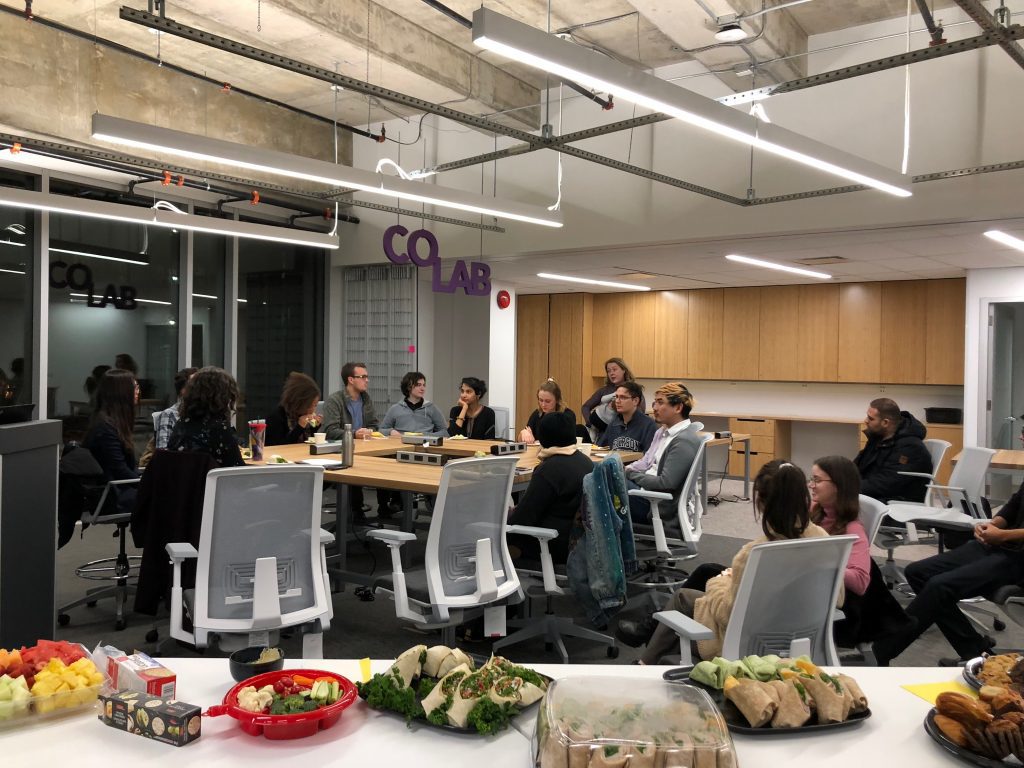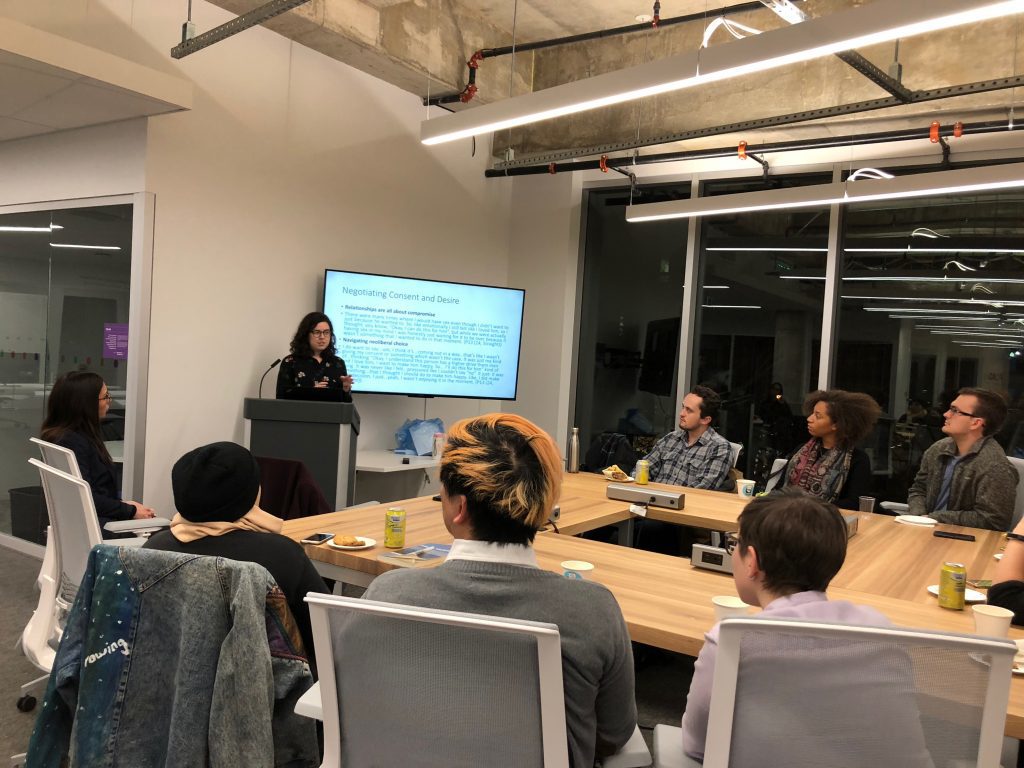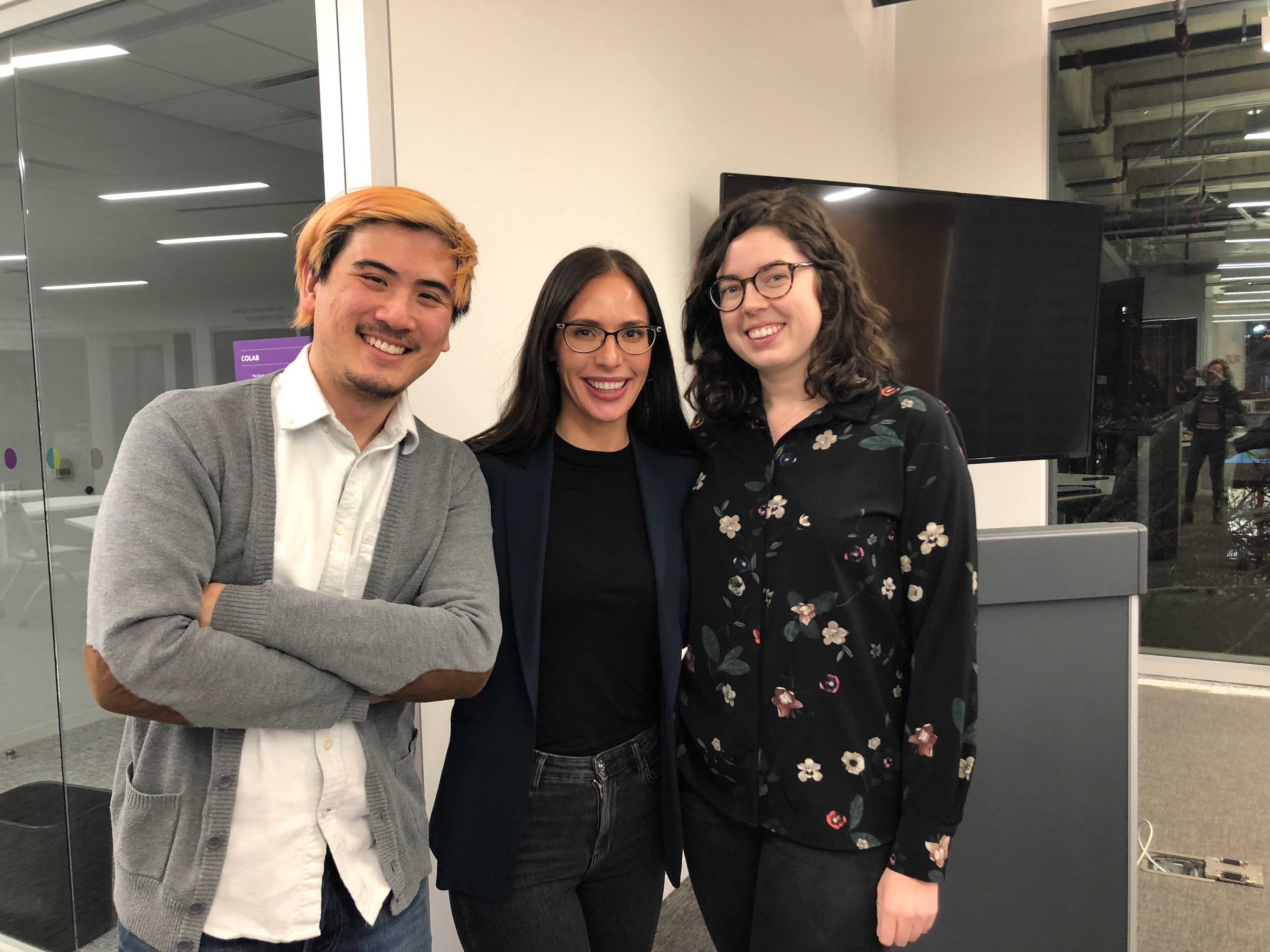By Ben Cohen
A new event series intended to foster interdisciplinary discourse had its inaugural session last month.
Weaving together clinical psychology and journalism, “Grads Gab” was an evening of discussion emerging from two seemingly disparate research areas. The event was organized by the Ryerson Journalism Research Centre and supported by the Catalyst.
Coordinator Laura Howells said she created the event because, as a former master of journalism student, she only really interacted with students in her own class.
“That felt so limiting – the university has so many students doing fascinating research, and there’s so much value in discussing issues and ideas with people from different backgrounds,” she said.
“Why not encourage more of those connections and conversations?”
Grads Gab will be a semi-regular event at Ryerson. In each session, grad students from two different disciplines will talk about their research, followed by an informal group discussion amongst presenters and audience members.
The first Grads Gab on Nov. 27 featured presentations from Ryerson Clinical Psychology PhD candidates Stephanie Cosma and Emily Thomas, as well as Master of Journalism student Adam Chen. Students attended from a broad spectrum of disciplines, from Engineering to Musicology.
What followed was over an hour of conversation involving both presenters and audience members that Howells said was “thoughtful, spirited and made all sorts of interesting connections.”
“People attended from a range of disciplines, and brought such neat perspectives,” she said. “It was exciting and I think we achieved what we were hoping for.”

The research
Cosma and Thomas are both part of the SHiFT Lab at Ryerson (Sexuality Hub: Integrating Feminist Theory).
Cosma, who kickstarted the night, said she began her research on “hegemonic masculinity” after noticing the immense pressure on men to “be men” and present as such.
This pressure often manifested as a pervasive need for heterosexual men to engage in and brag about their sexual activity, Cosma found, in order to validate their masculinity.
For her research, Cosma focused on advice from “pick-up artist” community websites, which coach men on how to attract and sleep with women. Cosma said these sites often foster the idea that a woman’s hesitation or denial to consent to sex could be “overcome” with the right techniques.
This segued into Thomas’ presentation; her work is in the areas of consent and unwanted sex.

Collectively, Thomas and Cosma’s research indicates that women are broadly positioned as responsible for receiving unwanted sexual experiences, while at the same time framed as passive recipients of sex, requiring men to interpret their bodies and minds for them.
“As a result, the responsibility for bringing up and negotiating consent is often placed on women,” said Cosma. “Even though the conditions put forth in the cultural script are strategically designed for them to be silenced and overridden.”
During her talk, Thomas noted that media coverage of academia can be a double-edged sword, citing instances in which some of her research on consent was misconstrued.
Flowing from there, Chen delved into his work developing more immersive and inventive forms of journalism. This includes 360-degree video stories and live, theatrical works of journalism, which he believes can generate more audience engagement.
Chen previously produced 360 videos while taking part in a multimedia journalism course in Hong Kong offered by Ryerson last year. There, he captured a vigil commemorating the 1989 Tiananmen Square protests, as well as the stories of local street food vendors.
Chen now works with the live journalism project stitched!, a concept and current project for Sonya Fatah, assistant professor of Journalism at Ryerson University.
Stitched! asked a supercourse team at Ryerson to take the basic editorial idea for a narrative story and turn it into a performed piece.
Chen and the rest of that team will be debuting their work in March 2019. They hosted a focus group in the Catalyst on Dec. 13 to preview a sample of the performance.
Chen says he hopes to explore the possibility of digitizing this “performance journalism” and making it more widely available.

